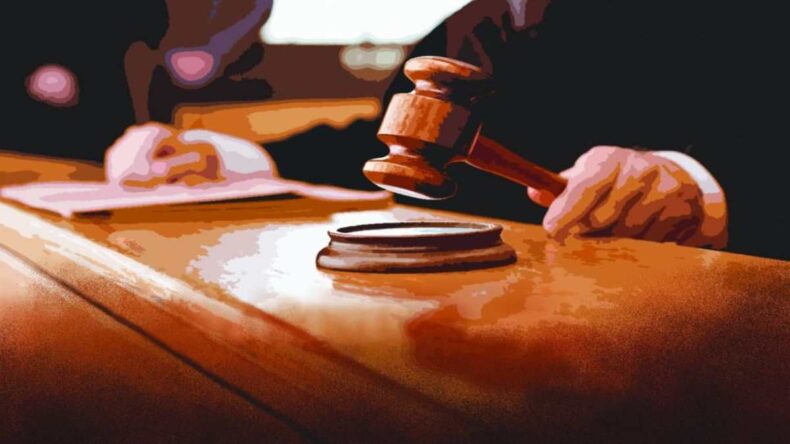Supreme Court 3:2 split verdict today on the EWS reservation, Justice Dinesh Maheshwari said “the quota law doesn’t violate the basic structure of the Constitution.”
On Monday (November 7), the Constitution Bench of the Supreme Court, with a 3:2 majority, upheld the validity of the 103rd Constitutional Amendment, which provides 10% reservation in educational institutes and government jobs to “economically weaker sections of the society.”
A five-judge bench led by retiring Chief Justice UU Lalit, including Justices Dinesh Maheswari, S Ravindra Bhat, Bela M Trivedi, and JB Pardiwala, had heard the case and reserved their verdict on September 27.

Four different judgments were pronounced today on Monday: Justice Dinesh Maheshwari, Justice Bela M Trivedi, and Justice JB Pardiwala concluded that the EWS reservation (Economically Weaker Section) should be upheld, and the other two, Chief Justice Uday Umesh Lalit and Justice S Ravindra Bhat, dissented.
However, despite the bench having dissenting views, in this case, the majority view is bound to prevail.
Majority View on EWS Reservation
Justice Dinesh Maheshwari Stated the three main issues,
- Whether is an instrument of representation of backward classes and whether economic criteria violate the basic structure of the constitution”.
- Whether the amendment violates the basic structure for excluding the poor among the SC/ST/OBC categories from EWS Quota.”
- Whether the amendment violates the basic structure for breaching the 50% ceiling limit.”
The three judges concluded that excluding SCs, STs, OBCs, and SEBCs from the purview of the EWS reservation was not a violation of an equality code. Justice Bela M. Trivedi observed that “the unequal cannot be treated equally.” “Treating unequals equally cannot violate equality under the Constitution.”

In their separate but coincident opinions, Justices Bela M. Trivedi and J.B. Pardiwala said reservations need a time span.
Justice JB Pardiwala said that the reservation cannot go on for an indefinite period and agreed with Justice Bela M Trivedi to the re-examination of reservation policy.
Dissented View on EWS Reservation
In the dissenting judgment, Chief Justice UU Lalit and Justice S Ravindra Bhat said that excluding the poor among SC, ST, and OBC from economically weaker sections or classes ( on the basis that they have benefitted) the103rd Amendment, which prohibits all forms of discrimination.
Chief Justice Lalit and Justice Bhat were also against breaching 50% of the ceiling in the reservation matter and said, “Permitting a breach of 50% would result in compartmentalization.”
What is EWS Quota and When was it Implemented
On January 7, 2019, the Union Council of Ministers approved a 10% EWS ( Economically Weaker Section% reservation for the general category in educational institutes and government jobs, excluding SCs, STs, and OBCs. The Rajya Sabha passed this bill on January 9.

It comes into force on January 14, 2019, when the 103rd Amendment amends Articles 15(6) and 16(6) of the Indian Constitution to permit this 10% EWS reservation.
On January 10, 2019, an NGO, Youth for Equality, and many other leaders from backward-class welfare groups opposed this policy and challenged the proposed amendment in the Supreme Court.
On January 25, 2019, the Supreme Court refused to stay the 10% reservation for the general category in the EWS quota in government jobs and educational institutes. On August 6, 2020, the court decided that a five-member bench would hear the matter.
Read More: https://tdznkwjt9mxt6p1p8657.cleaver.live/the-ews-reservation-supreme-court-constitution-tapping-day-2/https://tdznkwjt9mxt6p1p8657.cleaver.live/the-constitutional-court-rules-on-ews-reservations/













